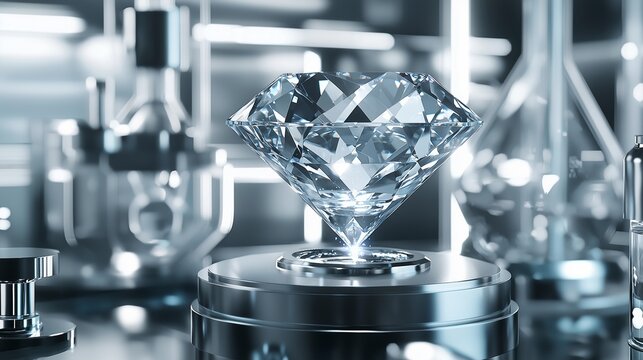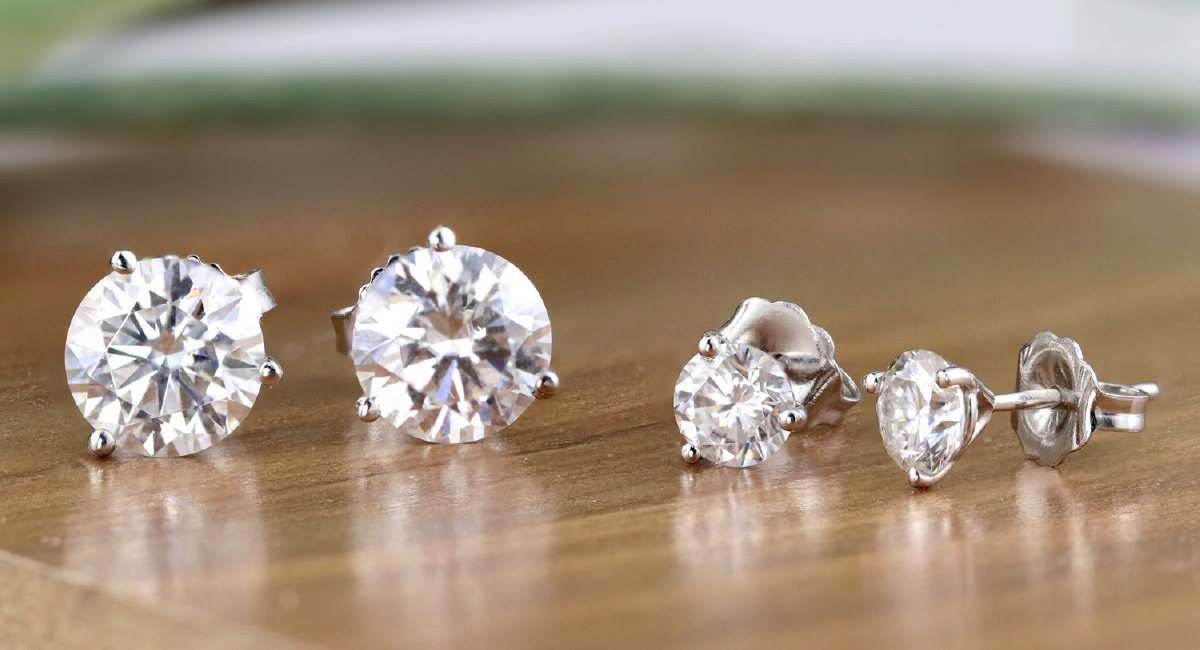When purchasing a diamond, one of the most important aspects to consider is its grading. Diamond grading certificates provide essential information about the quality of the stone and help buyers make informed decisions. Two of the most well-known organizations that provide diamond grading are GIA (Gemological Institute of America) and IGI (International Gemological Institute). While both institutions offer reliable diamond grading services, there are important differences between GIA and IGI that buyers should understand before making a purchase. In this article, we will compare GIA vs IGI to help you make an informed decision when choosing a diamond.
What is GIA and How Does it Compare to IGI?
The Gemological Institute of America (GIA) is one of the most reputable and well-known organizations in the diamond industry. Established in 1931, GIA has earned a reputation for providing highly accurate and unbiased diamond grading. GIA is considered the gold standard for diamond certification due to its consistent and rigorous grading process. In contrast, the International Gemological Institute (IGI), founded in 1975, is another prominent gemological lab that provides diamond grading services. While IGI also offers comprehensive and reliable grading reports, there are key differences between GIA and IGI that buyers should consider when comparing these two institutions.
Both GIA and IGI follow the 4Cs of diamond grading—cut, color, clarity, and carat weight—when assessing diamonds. However, GIA’s grading standards are widely regarded as more stringent and more universally accepted than IGI’s, which makes GIA’s certificates generally more trusted in the market. Understanding GIA vs IGI differences can give you better insight into how a diamond’s value is determined and why GIA is often considered the more respected grading authority.
GIA Grading: The Industry Standard for Accuracy and Trust
GIA is known for its unbiased and precise grading system. GIA reports are trusted worldwide and are often considered the most reliable source for diamond grading. One reason for this is GIA’s strict and consistent grading methods. GIA’s gemologists undergo extensive training to ensure that diamonds are graded to the highest standard. The organization uses highly advanced technology to assess diamonds with a high degree of accuracy. Because GIA’s grading is seen as more stringent, diamonds with a GIA certification often have a higher resale value and are typically more expensive than those graded by IGI.
When comparing GIA vs IGI, GIA’s reputation as the leading grading institution in the diamond industry cannot be understated. GIA is known for its transparency, providing detailed and clear information about how diamonds are graded. This level of transparency helps buyers feel confident in the quality of the diamonds they are purchasing. Whether you’re buying an engagement ring, a necklace, or any other diamond jewelry, a GIA certificate guarantees that the diamond has undergone a thorough, unbiased evaluation.
IGI Grading: A Reliable Option at a More Affordable Price
While GIA is often seen as the most prestigious diamond grading organization, IGI is also a respected name in the industry. IGI is known for offering a similar range of grading services as GIA, including assessments of the 4Cs—cut, color, clarity, and carat weight. IGI also provides certificates for diamonds, offering transparency and confidence to buyers. However, one of the key differences when comparing GIA vs IGI is the cost of grading services. IGI tends to be more affordable compared to GIA, making it an attractive option for buyers looking for a more budget-friendly alternative.
Despite being more affordable, IGI’s diamond grading is still considered reliable. However, it’s important to note that IGI’s grading is sometimes perceived as less strict than GIA’s. This means that diamonds graded by IGI may receive slightly higher grades than they would if graded by GIA. While IGI is still a respected institution in the gemological community, it is important for consumers to consider the potential differences in grading standards when comparing GIA vs IGI certificates.
The Reputation and Recognition of GIA vs IGI
When comparing GIA vs IGI, one of the key factors to consider is the recognition and reputation each organization has in the diamond industry. GIA is widely considered the gold standard in diamond grading, and its certificates are recognized and trusted by jewelers, retailers, and consumers worldwide. Many top luxury jewelry brands and high-end jewelers only use GIA-certified diamonds due to the institute’s reputation for precision and consistency.
In contrast, while IGI is recognized and respected in the industry, it does not have the same level of universal recognition as GIA. Some buyers may feel more confident purchasing a GIA-certified diamond due to the institution’s long-standing history and solid reputation for integrity. GIA’s grading system has become the benchmark for the diamond industry, and as such, GIA-certified diamonds often command higher prices on the market.
GIA vs IGI: Which is Better for Buying Diamonds?
When deciding between GIA and IGI, the better option depends on your specific needs, budget, and preferences. If you are seeking the highest level of accuracy, transparency, and long-term value, GIA is generally the better choice. GIA’s rigorous grading standards ensure that the diamond’s quality is assessed with the utmost precision, making it ideal for buyers who prioritize investment value and resale potential.
However, if you are looking for a more affordable option, IGI may be the right choice for you. While IGI’s grading standards may be less strict than GIA’s, IGI-certified diamonds are still of high quality and can provide good value for money. IGI is also a solid choice for those who want a reliable grading certificate without the higher price tag that often comes with GIA-certified diamonds.
Differences in Diamond Pricing: GIA vs IGI
One of the most significant differences between GIA and IGI when buying diamonds is the price. Since GIA is considered the leading diamond grading institution, diamonds with GIA certificates typically come with a higher price. GIA’s strict grading process can sometimes lead to lower grades for diamonds, which can affect their retail price. On the other hand, lab created diamonds graded by IGI are often priced lower because IGI’s grading system tends to be slightly more lenient. As a result, you might find that diamonds with IGI certification are more affordable, but it’s essential to consider the possible differences in grading standards when making a purchase.
Conclusion: Understanding GIA vs IGI
In conclusion, when comparing GIA vs IGI, both institutions offer valuable and reliable grading services, but there are notable differences. GIA is widely regarded as the most prestigious and trusted name in diamond grading, providing the most stringent and accurate assessments. Its reputation for high standards and transparency makes GIA certificates highly sought after by buyers. IGI, on the other hand, offers a more affordable option, but its grading may be considered slightly more lenient. Depending on your budget and needs, you can choose between the two organizations with a better understanding of their grading standards and how they impact diamond pricing.




